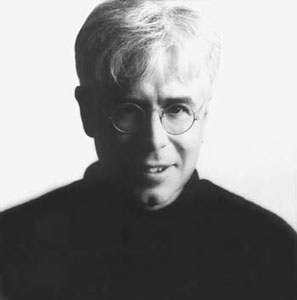Paying to Protest
Bruce Cockburn rails at the world's ills
By Nicky Baxter
ONCE A RABBLE-ROUSER, always a rabble-rouser. One of the sharpest political minds in rock today, Canadian Bruce Cockburn has been flailing away at imperialism and colonialism since the 1980s. His newest release, You Pay Your Money and You Take Your Chance (Rykodisc), is a collection of some of the singer-guitarist's brightest moments onstage. Recorded at the Barrymore Theater in Madison, Wisc., before an adoring audience of some 3,000, the album features Cockburn's work from the '80s on, ranging from the title track to the more recent "Birmingham Shadows."
You Pay Your Money explodes with a derisive account of the "modern democracy." The number "Call It Democracy" boasts supercharged guitar playing, with Cockburn as a more sophisticated Neil Young whipping up a monsoon of distorted chords. Cockburn has never made any bones about being a people's poet, and he sings in the language of Everyman: "North, South, East, West / Kill the best and buy the rest / It's just spend a buck / To make a buck / You don't really give a flying fuck / About the people in misery." The tune concludes with a hailstorm of dissonant electric guitar, crashing drums (Ben Riley) and booming, low-riding bass (Steve Lucas).
"Stolen Land" is a mournful lament about the uprooting of Native Americans, north and south. With insistently pounding tom-toms, terse bass and primal Bo Diddley guitar fleshing out the beat, Cockburn howls as if his soul's on fire. His extended solo is wild and free, here wailing bansheelike; there refracting single lines into a gauzy, slow dazzle.
Cockburn understands, however, that all politics and no love is a dry equation. On the sublime "Fascist Architecture," Cockburn uses political lingo to describe his inability to allow love to shine through. The fascist architecture is, in this instance, self-manufactured. At just under three minutes, it is the CD's briefest but most memorable piece. On the cryptic romancer that is the title track, Cockburn demonstrates he is a capable acoustic strummer; the song's lilting, lovely melody is more effective than its episodic lyric.
Cockburn saves the best for last. The epic "Birmingham Shadows" reveals the singer's affinity for longstanding jazz, mixing some of XTC's more pastoral sound schemes with shadings of John Trudell's monotonic poetic musings. Cockburn's self-accompaniment and solos are brilliant examples of the axiom "Less is more." Still, more is what's needed: there are but six songs on the album. The price is right, but surely Ryko could've been a mite more generous.
[ San Jose | Metroactive Central | Archives ]
Copyright © Metro Publishing Inc. Maintained by Boulevards New Media.
![]()

Taking No Chances: Bruce Cockburn's new album is a solid example of his powerful live show.
From the April 2-8, 1998 issue of Metro.
![[Metroactive Music]](/music/gifs/music468.gif)